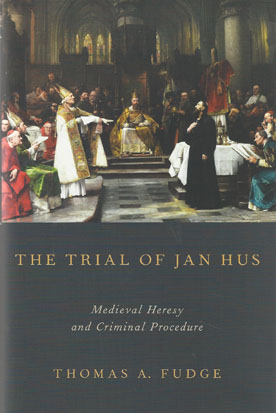
Six hundred years ago, the Czech priest Jan Hus (1371-1415) traveled out of Bohemia, never to return. After a five-year legal ordeal that took place in Prague, in the papal curia, and finally in southern Germany, the case of Jan Hus was heard by one of the largest and most magnificent church gatherings in medieval history: the Council of Constance.
Hus was burned alive as a stubborn and disobedient heretic before a huge audience. His trial sparked intense reactions and opinions ranging from satisfaction to condemnations of judicial murder. Thomas A. Fudge offers the first English-language examination of the indictment, relevant canon law, and questions of procedural legality concerning Jan Hus and the Holy See.
In the modern world, there is instinctive sympathy for a man burned alive for his convictions, and it is presumed that any court sanctioning such action must have been irregular. Was Hus guilty of heresy? Were his doctrinal convictions contrary to established ideas espoused by the Latin Church? Was his trial legal? Despite its historical significance and the strong reactions it provoked, the trial of Jan Hus has never before been the subject of a thorough legal analysis or assessed against prevailing canonical legislation and procedural law in the later Middle Ages.
The Trial of Jan Hus shows how this popular and successful priest became a criminal suspect and a convicted felon, and why he was publicly executed, providing critical insight into what may be characterized as the most significant heresy trial of the Middle Ages.